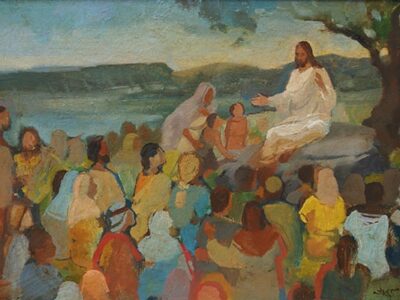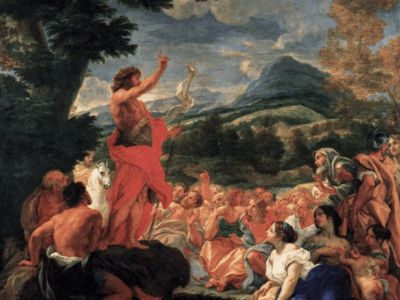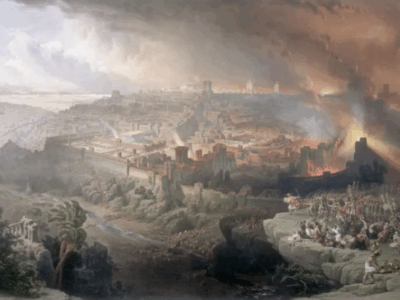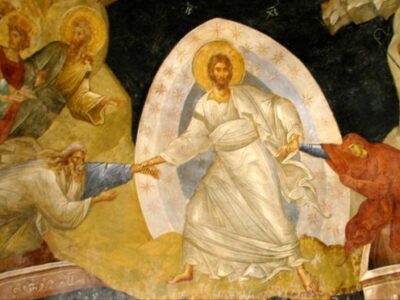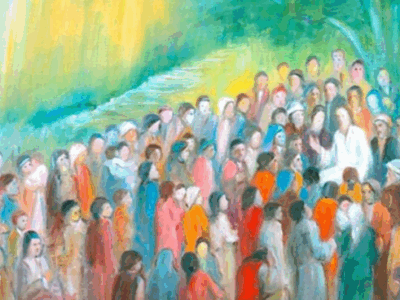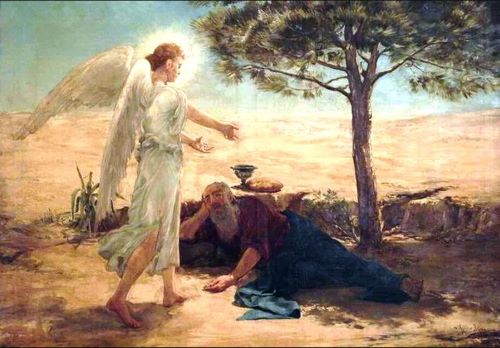
What Doesn’t Come Down from Heaven?
Year B
1 Kings 19:4-8
Psalm 34:1-8
Ephesians 4:25-5:2
John 6:35, 41-51
May the words of my mouth O God… speak your truth…
One thing that I enjoy sharing… every once in a while… especially to non-Lutherans… is that in the ELCA’s prayer book… the first 150 hymns… are the Psalms… a collection of religious poems… . many with musical settings… and they encompass a wide range of human feelings… things like joy and praise… thanksgiving… trust and faith… lament and sorrow… repentance and confession… anger and vengeance… fear and anxiety… hope and aspiration… love and devotion… and wonder and awe… and because our lives are full of these emotions… the psalms capture the breadth of human experience in relation to God…
And let me lift up that emotions aren’t right or wrong… or good or bad… they simply are… they are states-of-being… expressed by the verb… to be… which can appear as I am… he is… she was… we are… they were… ] and so someone might say… I am hungry… he is sleepy… she was rested… we are excited… they were confused… and since emotions are also feelings… if someone says… I feel… they also have to be able to say… I am…
And further… . emotions are energy-in-motion… they must flow through us and out of us… if we believe that our emotions are wrong… if we repress them… that energy will get stuck and may make us sick… or if we hold on to them… we may act out in inappropriate ways…
In today’s passage from 1 Kings… Elijah seems to have… just seems to have acted out in a surprising way… and here’s why… King Ahab has just assembled all of the Israelites… and Elijah puts a question before them… will they follow the true God Adonai… or will they follow the false god Baal… and so at God’s command… Elijah devises a test… speaking to the gathered priests of Baal… he said… let two bulls be given to us… choose one of them for yourselves… cut it in pieces… and lay it on the [ pyre of ] wood… but put no fire to it… I will prepare the other bull… and lay it on the wood… and will put no fire to it… then you call on the name of your god… and I will call on the name of the LORD… and the god who answers by fire is indeed God…
And the prophets called upon the name of Baal from morning until noon… they limped around the altar they had made… and they cut themselves with swords and lancets until the blood gushed out over them… and they raved on… until about sunset… but there was no voice… no answer… and no fire…
And Elijah repaired the altar he made… which had been thrown down… and he took twelve stones… and made a trench around the altar… and poured twelve jars of water over the offering… and over the wood… so that it filled the trench… ] twelve… according to the number of tribes of the sons of Jacob… and at sunset… Elijah called upon the God of Abraham… Isaac… and Israel… and the fire of God fell… and consumed the offering… and the stones… and the wood… and even licked up the water that remained in the trench… and when all the people saw it… they fell on their faces and said… The LORD indeed is God… and Elijah said to them… seize the prophets of Baal… don’t let one of them escape… and they seized them… all four hundred fifty of them… and brought them down to the Wadi Kishon… and killed them there…
And after all of this… after having done God’s bidding… after having affirmed that only the Lord is God… after having helped turn the Israelite’s hearts back to God… you’d think that Elijah would feel affirmed… acknowledged… maybe even appreciated… but after all of this… King Ahab’s wife Jezebel… who brought idolatry into the Northern Kingdom of Israel… Jezebel sent a threatening message to Elijah… which said… If by this time tomorrow… I have not made your life… as you have made theirs… may the gods do the same… and more to me…
And Elijah felt afraid… and fled for his life… and we can imagine him feeling discounted… depressed… discouraged… his success on God’s behalf… meant nothing to him now… especially with Jezebel on his heels… and so he escapes to Beersheba… and then goes another day into that inhospitable wilderness… and now… while hiding under a broom tree… Elijah asks God to end his life… the critical voices in his head… must be too much to bear… he may even have PTSD…
But God doesn’t abandon him… God sends an angel to feed and tend to him… not once… but twice… to strengthen him for his journey… and what this tells me… is in spite of how he felt… God was with him… as God is with us… and the food that he was given… must have been something else… because the text tells us that in the strength of that food… Elijah traveled for forty days and nights to reach Mt. Horeb… also known as Mt. Sinai… reminding us perhaps of the Israelite’s forty year journey in that wilderness…
In the strength of that food… the food given to Elijah by the angel is more than just a cake of bread and some water… it is symbolic of spiritual nourishment and divine sustenance… Elijah is being strengthened by God’s grace and power… ] just as the Word of God nourishes the soul and provides strength for the journey of faith… and the food given may foreshadow the Eucharist… where the bread and wine become spiritual food that sustains us…
In today’s Gospel… Jesus’ audience knows him as Joseph and Mary’s son… they know him as human… as mortal… and they seem to forget that he has just fed more than five-thousand people… and that the leftovers filled twelve baskets… ] but in v. 35 he says… I am the bread of life… and in v. 38 which is omitted from today’s reading… he says… I have come down from heaven… and the Jews complain when he says… I am the bread that came down from heaven… so which is it… is he human… or is he divine… in their either / or thinking… they cannot reconcile how both can be true… they have no point of reference for both / and… but if God is always free to act in unexpected and often incomprehensible ways… then Jesus is also able to be fully human and fully divine…
But Jesus’ own emphasis was not on his human identity… but on his authority… a theme with which the religious authorities were obsessed… he emphasized his role as the giver of divine life to others… the bread he offered is more than manna… which was heavenly food intended only to sustain earthly life… but the bread he offers satisfies hunger forever… ] he expanded their short-sighted understanding of what they thought possible… ] and so when he says… I am the bread that came down from heaven… he reveals himself as living bread which sustains and transforms people from death to eternal life…
Those who have come to Jesus… have come… because they heard God’s call… ] and the ones whom God teaches… recognize the fullness of God’s life… the life that is everlasting… that’s why Jesus also says… I will raise that person up on the last day… because those who are lifted up… will be lifted up in love…
The Gospel-writers had a number of words from which to choose to convey love… but they all chose the word agape… which speaks of a love… in which the one who is loved… is raised to the level of the one who loves… and just as Jesus has been raised to the level of the Father’s love… his love for us raises us to the level of his love… and that kind of love heals us… heals us enough so that we too… will be brought into God’s loving embrace… where we will fully know… the I AM…

